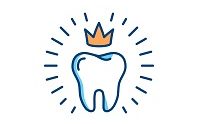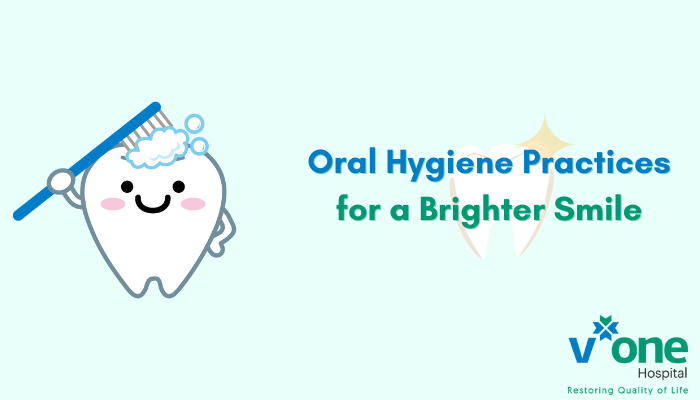Introduction
Oral hygiene plays a crucial role in maintaining overall health and well-being. It is not just about having a bright smile; it is about preventing various dental issues such as cavities, gum diseases, and bad breath. By adopting a proper oral hygiene routine, you can ensure the health of your teeth and gums, and also contribute to your overall physical health. In this blog post, we will explore some essential tips and practices for maintaining optimal oral hygiene.
Importance of Oral Hygiene

Oral hygiene plays a crucial role in maintaining overall health and well-being. It involves the practice of keeping the mouth clean and free from any dental issues such as cavities, gum diseases, and bad breath. By maintaining optimal oral hygiene, you can prevent various dental problems and ensure a healthy smile.
Brushing Techniques
Proper brushing techniques are essential for maintaining optimal oral hygiene. Here are some tips to follow:
Choose the Right Toothbrush
Use a soft-bristled toothbrush that can reach all areas of your mouth easily. Replace your toothbrush every three to four months or sooner if the bristles become frayed.
Brush Twice a Day
Brush your teeth at least twice a day, preferably after meals. Brushing helps remove plaque and food particles that can lead to tooth decay and gum diseases.
Use the Correct Technique
Hold your toothbrush at a 45-degree angle to your gums. Gently move the brush back and forth in short strokes, covering all surfaces of your teeth, including the outer, inner, and chewing surfaces.
Don’t Forget Your Tongue
Brushing your tongue helps remove bacteria and freshens your breath. Use a tongue scraper or the bristles of your toothbrush to clean your tongue gently.
Flossing for Healthy Gums
Flossing is an essential part of maintaining optimal oral hygiene. It helps remove plaque and food particles from between your teeth and along the gumline. Follow these steps for effective flossing:
Choose the Right Floss
Use a dental floss that suits your preference, such as waxed or unwaxed floss. You can also use floss picks or interdental brushes if they are more convenient for you.
Proper Technique
Take about 18 inches of floss and wrap it around your middle fingers, leaving a few inches of floss to work with. Gently slide the floss between your teeth, curving it around each tooth in a C shape.
Summary
Maintaining optimal oral hygiene is vital for a healthy mouth and overall well-being. By following a few simple practices, you can keep your teeth and gums in excellent condition. Regular brushing and flossing, along with routine dental check-ups, are the foundation of good oral hygiene. Additionally, incorporating a balanced diet, limiting sugary foods and drinks, and avoiding tobacco products can further enhance your oral health. Remember, a health click here for info y smile goes beyond aesthetics; it is a reflection of your overall health. Prioritize your oral hygiene today for a brighter and healthier future.
- Q: How often should I brush my teeth?
- A: It is recommended to brush your teeth at least twice a day, preferably in the morning and before bedtime.
- Q: What type of toothbrush should I use?
- A: It is best to use a soft-bristled toothbrush that can reach all areas of your mouth comfortably.
- Q: How long should I brush my teeth?
- A: You should brush your teeth for a minimum of two minutes each time to ensure thorough cleaning.
- Q: Is flossing necessary?
- A: Yes, flossing is an essential part of maintaining optimal oral hygiene as it helps remove plaque and food particles from between the teeth.
- Q: How often should I replace my toothbrush?
- A: It is recommended to replace your toothbrush every three to four months or sooner if the bristles become frayed.
- Q: Should I use mouthwash?
- A: Mouthwash can be a helpful addition to your oral hygiene routine, but it is not a substitute for brushing and flossing. Consult with your dentist to determine if mouthwash is right for you.
- Q: How often should I visit the dentist?
- A: Regular dental check-ups are important. It is generally recommended to visit the dentist every six months for a professional cleaning and examination.
- Q: Can diet affect my oral health?
- A: Yes, a balanced diet plays a significant role in maintaining optimal oral hygiene. Limit sugary and acidic foods and drinks, and consume plenty of fruits, vegetables, and water.
- Q: What should I do if I have bad breath?
- A: If you have persistent bad breath, it is important to identify the underlying cause. Regular brushing, flossing, and tongue cleaning can help, but if the problem persists, consult with your dentist.
- Q: Is smoking harmful to my oral health?
- A: Yes, smoking can lead to various oral health problems

Welcome to my website! I’m Benjamin Deakin, a dedicated and passionate dentist with years of experience in providing exceptional oral health treatment, cosmetic dentistry, dental implants, and emergency dental care. I am thrilled to have the opportunity to share my knowledge and expertise with you.



